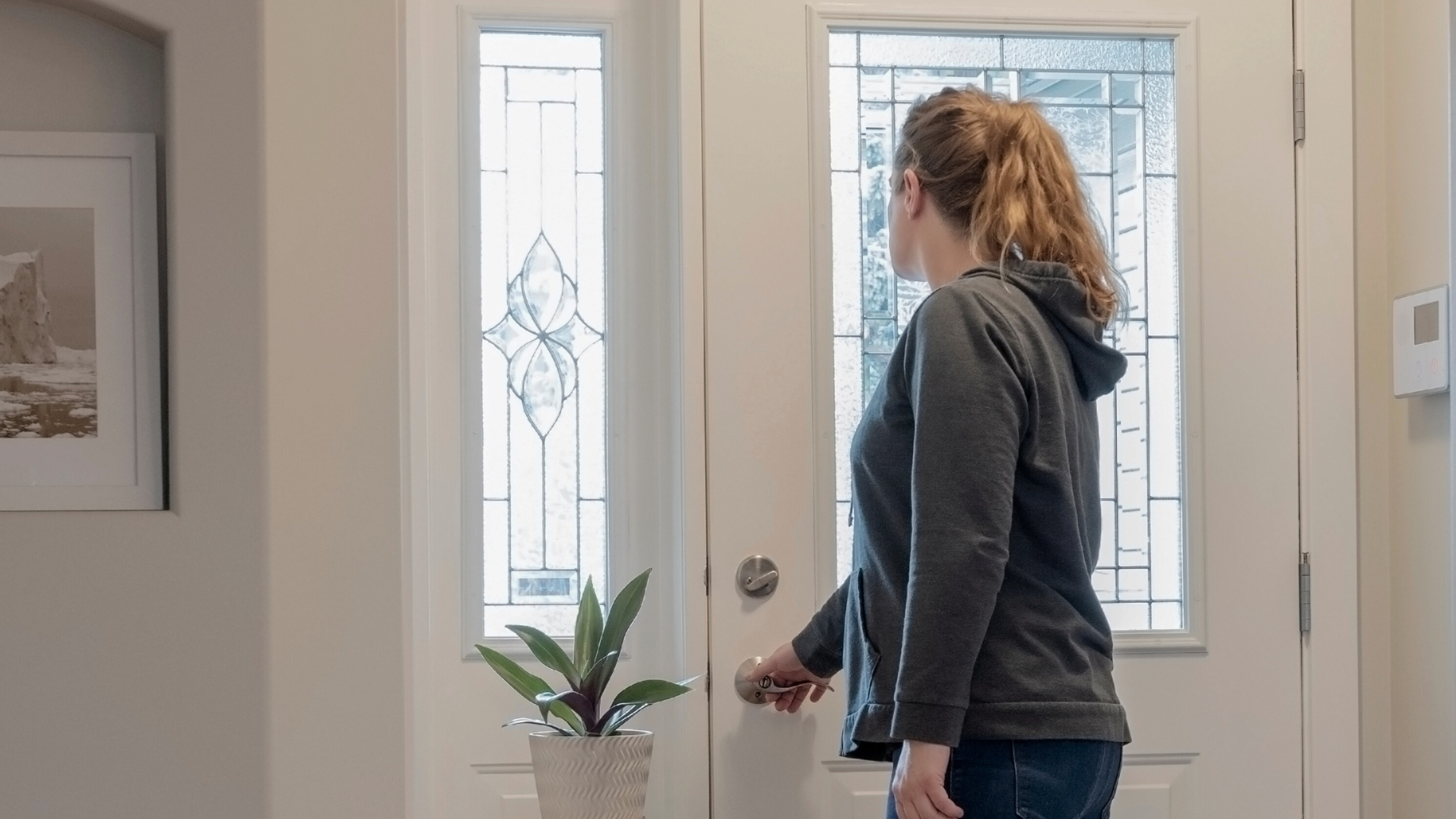Boobs to bailiffs
I appear to have become a little bit obsessed with front doors, and specifically opening one’s own front door to one’s own home. It’s either deeply symbolic or I finally lost the plot, so bear with me and reserve judgement till the end of this piece.
I’ve been thinking about the front door of my childhood home. 1970’s green and painted by my Dad ….occasionally. I don’t think I ever had a key as the idea that someone wouldn’t be in was too far-fetched. In my student halls, the front door of the building didn’t hold as much significance as the door to my room, but I absolutely remember the first home that was truly mine and the ownership of keys that meant I categorically controlled the relationship between me and the rest of the world.
Back in March this year, the girl moved into her own place. She’s 23 and it was quite a monumental occasion. She’s a tenant in her own home and she’s got quite a significant team of people supporting her. The system does, of course, describe her as very complex. The move has been more than a year in planning and far from straightforward, but that’s the content of another blog and we got there.
Here’s the thing. The first day I went to visit her, the day after she moved in, I rang her doorbell and was surprised to see one of her support team open the door. I smiled and said, ‘oh is the girl not there?’ The young woman replied, ‘yeah she’s here, she’s upstairs, I’ll get her.’ I noticed I immediately felt a prickling of unease under my rib cage that warned me I might be about to say something I’d regret. I said it anyway. ‘I’m just a bit surprised that you’re opening her front door when she’s home. Does anyone else open your front door?’ I caused a rabbit in the headlights moment for which I am not proud, and she apologised and said that she didn’t realise…and I felt crap.
One of her team picked it up with a manager later that week after I found that they had also let themself in without the girl knowing they were there. Their response was that, as someone who worked (and I quote) ‘for the landlord’, they had the right to enter the house at any time they chose to. Let’s just park that for a moment. They also said that there was a risk to the girl opening her own front door and that if that was to be protocol it would need to be risk assessed. I suspect that my stunned silence might have conveyed how I was feeling so they helpfully stepped in with an example of how risky it could be. ‘What if the girl exposed her breasts when she opened the front door?’ This is indeed a possibility as the girl does like to share, but I suggested that this was something that, although it might slightly be disconcerting for the Amazon delivery person, we could probably work with. The next offer was, ‘What if she answered the door and it was bailiffs?’ This blindsided me for a moment, but I offered that perhaps we should be questioning the effectiveness of the support that she was receiving if we got to the point of bailiffs? I’m probably off the Christmas card list.
Anyway, this got me thinking and asking my friends whether they expected to open their own front door? I quizzed a range of friends and family on the occasions we might open someone’s front door for them. What if I was round having a meal with a friend and she popped upstairs to nip to the loo and the front doorbell rang… would you answer the door? I probably would, but I’d shout up the stairs, ‘I’ll get that’. I’d explain to the person at the door that my friend wouldn’t be long, and I certainly wouldn’t let someone I didn’t know in.
Does all of this feel perhaps a little overzealous or a bit of an overreaction?
To me, it feels really fundamental. If we talk about everybody’s right to live in a place we call home (as in the Social Care Future vision), isn’t the first starting point for ‘home’ to be control over who comes in? When I’m with groups of people who work in the world of social care, I often ask them if they have ever lived in a house that wasn’t home. Without exception, there’s always a small but significant group of people and sometimes a majority of people who can relate to that concept. I know I can. We then explore what ‘home’ means and along with feeling safe and belonging, a key thing is the symbolism of control over my own front door.
Of course, there are times when I have felt very grateful for someone else to open my front door; years ago, when I’d had an operation on my knee, after a particularly vicious hangover, and when the world was desperately black and dark, and I couldn’t face the world. The difference on each of those occasions was that my front door was opened by somebody who I loved and who had agreed with my consent to do that opening for me.
Let’s go back to the manager saying that they worked for the landlord. Firstly, a fundamental principle of secure tenancy is the separating of tenancy from support. They might have been delegated duties of support from the landlord, but I also live in rented accommodation and the letting agency is very clear to check if I’m going to be in and ask my permission before they consider coming into my house.
Now every time I go visit the girl, I can feel the anxiety building inside me as I knock on the door and wonder who will answer it. I’m sure the team who support her feel the same, as sometimes the girl really doesn’t want to answer her front door, so what do we do about that?
One of the tests I am developing for Gloriously Ordinary Lives is, ‘would I want that for me or someone I love?’. Someone thinking it is ok to open my front door fails that test fairly and squarely, as it challenges the crux of what home means to me. Words like safe, belonging, warm. Somewhere I can be who I am and do what I like without judgement or justification. I’d challenge you to think about who in your life you would feel comfortable opening your front door without asking you first. I genuinely can’t think of anyone.


